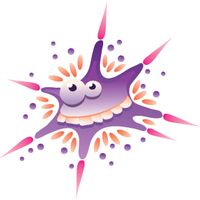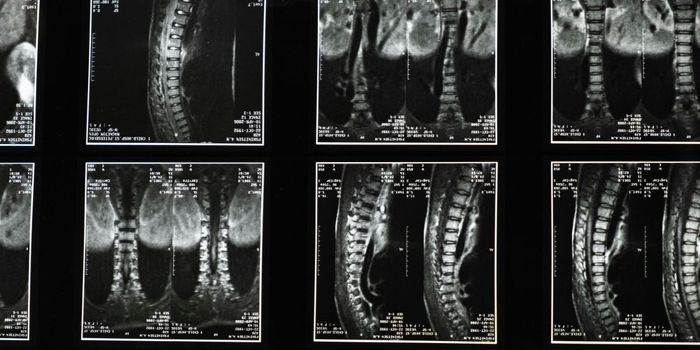Chemistry & Physics
Who Killed The Dinosaurs? Maybe Dark Matter Did It!
MAR 13, 2014 12:00 AM PDT
Share
Preschoolers Demonstrate Basic Algebra Skills
 Algebra may be giving your middle school or high school student fits, but according to a new study, children have some level of basic algebra skills and understanding of the principles without even realizing it.
Algebra may be giving your middle school or high school student fits, but according to a new study, children have some level of basic algebra skills and understanding of the principles without even realizing it. A research group from Johns Hopkins University determined that even without any formal training-and in some cases little if any schooling at all-a majority of children between ages 4 and 6 are able to apply basic algebra principles. The team's work was published in a recent issue of Developmental Science.
The children are displaying use of an "Approximate Number System", best described as an innate sense of numbers that both humans and animals use to quickly assess the number of nearby physical objects. Presumably this has an evolutionary basis, when this ability may have been a factor of survival in the wild.
The research team constructed a clever arrangement with two stuffed animals called Gator and Cheetah, and created the situation for children to set up an equation with two variables and solve it without realizing that's what they were doing.
Gator and Cheetah both were given "magic cups" filled with various objects-buttons, pennies, and similar small objects.
Meanwhile, the children were told that each animal's cup could magically add to the number of items in a pile that was already located on the table. The children could not see the inside of the cups and therefore could not count the items that each cup held.
The children were shown the pile on the table before and after items had been added, so they could roughly determine the number of items added to the pile, but not whether the items came from Gator's cup or Cheetah's cup.
At the end of the experiment, the proctor told the children that she had confused the cups, and asked them to help her figure out whether she held Gator's or Cheetah's cup by showing them the amount of items in that cup. The majority of children correctly guessed whose cup the proctor was holding.
Without realizing it, most of the children were setting up equations-think of one animal's cup as x and the other as y-and once they had enough known values to work with (the pile numbers and one of the cups), they correctly solved the equations.
Given that other studies have shown older children with greater math skills possessed an advanced sense of numbers as preschoolers, maybe we shouldn't ask what enhanced the skills of more advanced students, but instead we should ask what prevented the average student from developing their innate capabilities.
The research team suggests that the more rigid approach of memorizing rules and symbols may blunt our innate abilities, although it isn't clear how. If true, perhaps the methods of explaining the rules should relate more to obvious, visual examples whenever possible.
Hopefully this research can eventually lead to better methods of developing the algebraic skills of preschoolers and translating them to greater success in middle and high school-unfortunately, that knowledge probably doesn't help your current students.
You May Also Like
Loading Comments...








